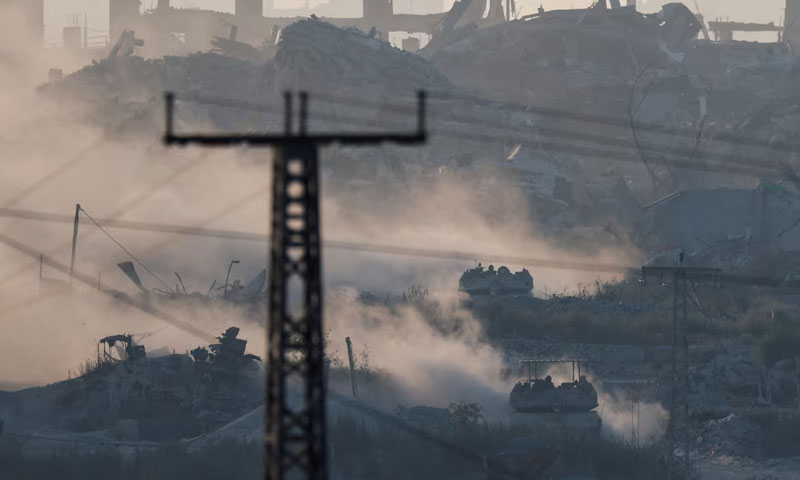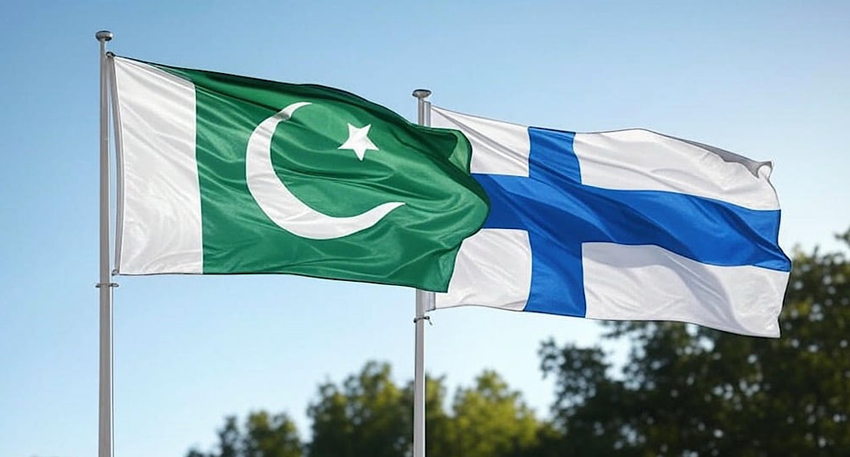
After weeks with little public diplomacy, mediators Egypt and Qatar delivered a response from Hamas to a proposal that would include a release of hostages held in Gaza and a ceasefire in the Palestinian enclave.
Israel is studying the document, said a statement released by Prime Minister Benjamin Netanyahu s office on behalf of the Mossad spy agency.
Egypt, Qatar and the United States have been trying for months to secure a truce and the release of 120 remaining hostages in Gaza, but their efforts have repeatedly failed.
Also read: Thousands flee their homes as Israeli forces bomb southern Gaza
Hamas says any deal must end the war and bring a full Israeli withdrawal from Gaza. Israel says it will accept only temporary pauses in the fighting until Hamas is eradicated.
"Israel is examining the response and will respond to the mediators," the Mossad statement said without further details.
In UK polls, voters seek candidates who care about Gaza
Tire shop owner Raja Ijaz recounts a conversation he had recently with the local Labour Party candidate in Britain’s upcoming general election.
When Tanmanjeet Dhesi came to ask for his vote, “I told him bye-bye,” says Mr. Ijaz, showing the white of his palm. “I said, I’m not voting for you because you didn’t vote for the cease-fire in Gaza. My entire family has abandoned the Labour Party because of this reason.”
Some of his Muslim neighbors have broader concerns, equally unhappy with both leading parties, including the Conservatives.
It is unusual in Britain for ethnic groups to vote along religious lines. But the leading political parties’ tepid response to Israel’s war in Gaza is prompting Muslims to favor independent candidates.
Also read: Palestinian militants fire rockets into Israel, tanks advance in Gaza
“Neither of the two main parties has raised their voice about Gaza,” says Muhammad Salim, two doors down from Mr. Ijaz. “This is a really important issue for me because people are dying, and I’ll be raising my concern by voting for an independent.”
That would be music to the ears of a new organization, The Muslim Vote, launched six months ago to try to shape a Muslim voting bloc that will demand that politicians pay attention to Muslim concerns. Such a bloc, based on religious belief, is unprecedented in Britain, outside Northern Ireland.
Likewise, Shanaz Saddique is one of a surge of pro-Palestinian candidates hoping to mobilise Muslim votes at Britain’s July 4 election by tapping into discontent over the two main political parties positions on the war in Gaza.
Both the ruling Conservatives and the resurgent Labour party have said they want the fighting to stop, but have also backed Israel s right to defend itself - angering some among the 3.9 million Muslims who make up 6.5% of Britain’s population.
Few, if any, of the pro-Palestinian candidates running as independents or for non-mainstream parties will get elected to parliament, but "The Muslim Vote" campaign is looking to win enough votes to send a strong message to those who do.
"Gaza is ... not about a political argument. It s a human rights argument," Saddique, who is running to be elected as a Member of Parliament for Oldham East and Saddleworth north of Manchester told Reuters,
"We do not apologise for being the Gaza party."
The Muslim Vote campaign is advising voters to pick pro-Palestine candidates running as independents or from smaller parties like the left-wing Workers Party, which has put up 152 candidates including Saddique.




